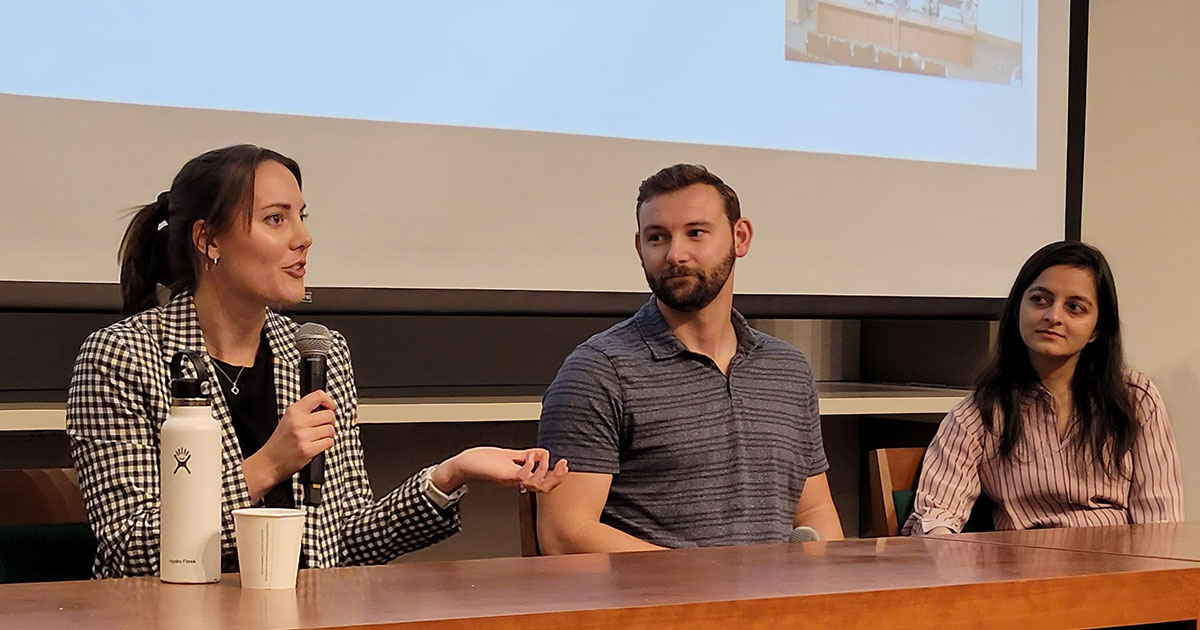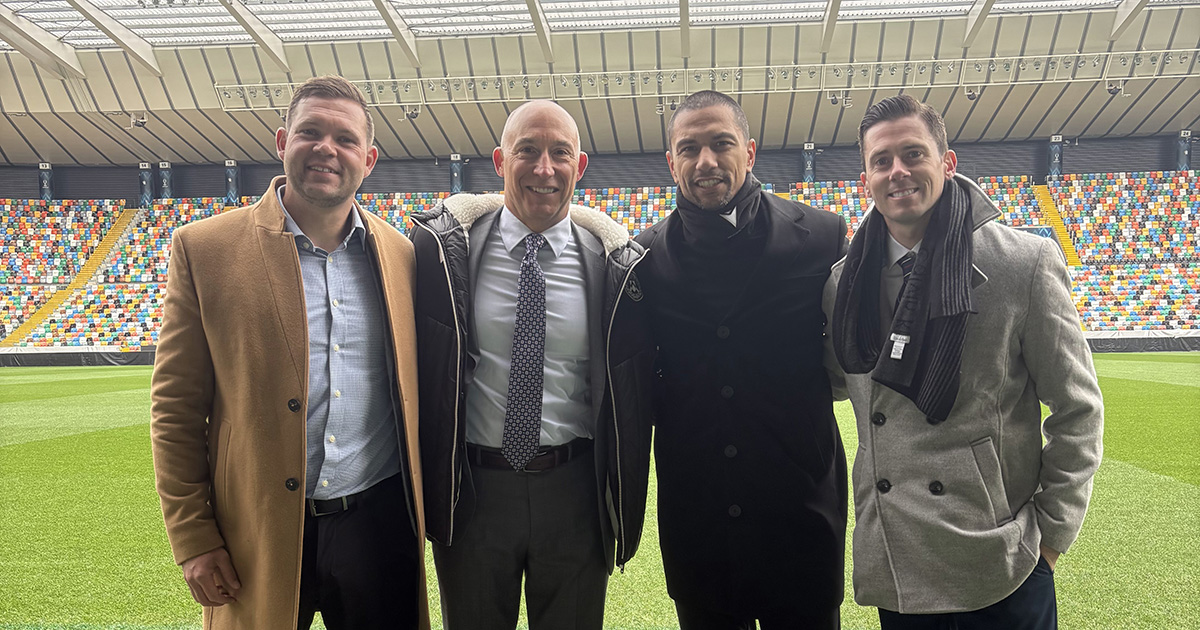Connections, Conversations, and the Search for an MBA Internship

The search took effort. It also took months.
To land an internship for the summer after her first year of graduate school, Melissa Belec MBA’23 began looking the previous October, not long after the beginning of her very first semester.
She was interested in working with a tech company addressing climate change, and so to better understand the field’s companies and leaders, she conducted a ton of research and reached out to a different person in the industry every day, asking for an informational interview. Month after month, she kept at it. “You want to have cadence and discipline,” she says.
Not that every person wanted to meet, or even got back to her. In her estimation, Belec figured she needed to send out five emails to land every one informational interview.
She used those interviews to learn and build relationships. She never once asked someone for a job directly. “This was not an opportunity to ask for a job,” Belec says. “It was really an opportunity to connect and ask them for career advice.” And, at the end of every conversation, she asked the person to recommend another potential connection she should try to make.
In that way, the search rolled on, every interview bringing her closer to her ideal internship, one that would serve as the next step in her career. Belec detailed the long process as part of Second Years Tell All, an event in which second-year MBA students at Babson reveal how they landed crucial summer internships.
Those internships can lead to jobs or introduce students to new industries to explore. They can also make students question assumptions they’ve made about their futures. “It can be beneficial no matter what, whether it confirms you are on the right path or that you want to pivot,” says event moderator Erica DeBiase MS’15, associate director and relationship manager at Babson’s Graduate Center for Career Development.
Before an audience of first-year MBA students beginning their internship searches and eager for tips and inspiration, the panel of second-year MBA students discussed their experiences. They spoke about how they prepared to talk with recruiters, and the interviews that potential employers put them through, and the helpful career resources that Babson offers.
Most of all, they talked of the importance of networking and the amount of time and effort it takes to do it properly. “Those are relationships you have to build over time,” DeBiase says. “It’s a major process. It’s something you can’t shortcut. We encourage students to start early.”
Right Place, Right Time
Komal Desai MBA’23 knows that firsthand. She began her summer internship search in early January, a few months after Belec, and she immediately found herself behind. “I was pretty late to the process,” she admits.
What followed was a mad dash. At times, she was devoting seven to eight hours a day to her internship search. “There was no stop,” she says. “It took me almost, I would say, 100 days to start from the connections, to build up to do every single thing, and to do the interview. I would not advise this.”
Complicating matters was the fact that she came from another country, in her case India. Networking requires reaching out to people you don’t know, but this was especially true in her case. “If someone from America would require, let’s say X amount of time, we definitely need more than that for sure,” Desai says. “We have to build connections from scratch.”
“I knew what my skill sets were and what I can do for them, and I was at the right place at the right time.”
Melissa Belec MBA’23
In the end, though, Desai landed a satisfying finance leadership internship with Amazon. Belec also found a rewarding business strategy internship with Sense, a company seeking to reduce carbon emissions in homes.
Belec knew from her months of conversations and research that Sense would be a good fit. So, she did what she always did: She reached out. “Here’s my skill set,” she wrote the company. “Here’s what I think I can do for you.” Soon, she was talking with a Sense leader on the phone. “You’re actually calling me at the perfect time,” he told her. “I have this challenge that I’m trying to solve. Can you meet with my HR?”
Belec had prepared a CV and cover letter, but she ultimately didn’t need them. She got the internship the next day. “I knew what my skill sets were and what I can do for them,” she says, “and I was at the right place at the right time.”
Networking Doesn’t Stop
When networking and building relationships, the panel—which also included Liam Aherne MBA’23 and Aaron Yaniro MBA’23, who landed internships at Takeda Pharmaceutical Co. and EY-Parthenon, respectively—said students should make sure not to badger people with repeated emails and calls. The panel also recommended that students keep a record of all the conversations they have.
DeBiase remembers one student who ran into trouble by not doing this. “They talked to so many people that when they got a call back from this company, they had absolutely no recollection of the conversation they had with that person,” DeBiase says. “So, it’s really important to take notes.” Desai color codes records of her conversations. Green, for instance, is for people who are so helpful that Desai plans to keep in touch with them.
“Networking doesn’t stop. Networking goes all throughout your life.”
Komal Desai MBA’23
Not networking effectively can hamper one’s ability to land a quality internship. DeBiase remembers another student who confided in her that he had applied to a staggering amount of jobs, some 500 postings but wasn’t having any luck. “He was the most ambitious student that has sat in my office,” she says, but he was going about his search wrong.
“You need to switch your approach,” she told him. “It is more about the connections and the conversations.” The student did just as he was told, and the next time she ran into him he was keeping a detailed spreadsheet of the conversations he had and was scheduled for three interviews on that day alone.
Networking may be hard work, but ultimately, one can’t predict how a particular connection may help, whether by leading to an internship or even a job further in the future. The only given is that without networking, opportunities are harder to find. “Networking doesn’t stop,” Desai says. “Networking goes all throughout your life.”




